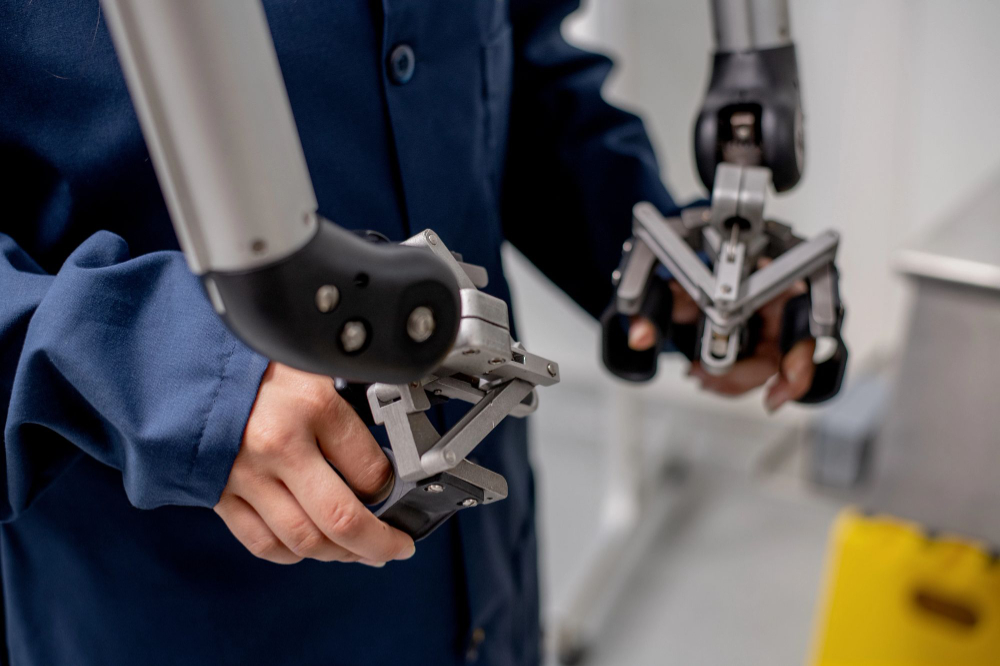Biomedical Engineering
Bachelor of Science in Engineering (B.S.E)
Undergraduate Major
Allendale • Grand Rapids • Face to face • 154 Credits

Undergraduate Major
Allendale • Grand Rapids • Face to face • 154 Credits
Biomedical engineers integrate science, medical expertise, mathematics, and creativity improve health and quality of human life.
Through internships, research projects, and collaboration with industry professionals, students develop a strong foundation in biomedical engineering principles and practices. Grand Valley's biomedical engineering program integrates hands-on learning and paid field experience, preparing students to enter engineering careers with the leadership skills necessary to succeed in their profession.
The major includes coursework in medical device design, bioelectric potentials, biomaterials, biomedical imaging and image processing, biomechanics of human motion, modeling of physiological systems, and anatomy and physiology.
Grand Valley prepares you to directly impact lives through designing medical devices, modeling physiological systems, and developing medical instrumentation. You will work with state-of-the-art motion capture equipment, tools for testing physiological signals, and advanced prototyping capabilities. The program emphasizes real-world, hands-on projects in small, student-focused courses. Graduates enjoy nearly 100% placement in industry-based careers or advanced graduate study.
Students with no previous college credit, or those who have not completed the 64-semester-hour engineering foundations course sequence, are pre-majors. Students who intend to pursue the B.S.E. degree are urged to declare an engineering major as soon as possible.
The School of Engineering admits students directly to major standing as freshmen. This honor is reserved for students who have both a 29 or higher composite score and a 32 or higher mathematics score on the ACT and a 3.6 or higher high school GPA.
Admission to major standing in the B.S.E. program requires a secondary application. Applicants must meet at least the following:
See catalog for details.
Seymour and Esther Padnos College of Engineering
gvsu.edu/engineering
136 Kennedy Hall
(616) 331-6750
Admissions and Recruitment Office
Plan, direct, or coordinate activities in such fields as architecture and engineering or research and development in these fields.
Top skills| Annual Earnings | Percentile |
|---|---|
| $108,034.76 | 10% |
| $131,012.45 | 25% |
| $162,684.90 | 50% |
| $176,233.99 | 75% |
| $216,556.81 | 90% |
Apply knowledge of engineering, biology, chemistry, computer science, and biomechanical principles to the design, development, and evaluation of biological, agricultural, and health systems and products, such as artificial organs, prostheses, instrumentation, medical information systems, and health management and care delivery systems.
Top skills| Annual Earnings | Percentile |
|---|---|
| $ 75,379.19 | 10% |
| $ 90,500.79 | 25% |
| $103,812.79 | 50% |
| $139,131.20 | 75% |
| $234,707.20 | 90% |
Grand Valley State University offers a wide variety of merit-based
scholarships. For information on all of the scholarships that are
available to students, please visit Scholarships at GVSU.
Grand Valley offers myScholarships
(a scholarship matching tool) to help admitted students match
with GVSU scholarships, as well as external scholarship opportunities.
myScholarships will prompt you to answer questions to help match you
to scholarships for which you might qualify.
Biomedical Engineering Scholarships
Getting involved and staying engaged with our vibrant campus community help you make the most of your Grand Valley experience. Attending student life events, joining a student organization, or participating in campus recreation opportunities are all fantastic ways to maximize your college years:
Whether you are a first-year student, a transfer student, or a current student thinking about your career options, advising is an important part of your academic journey.